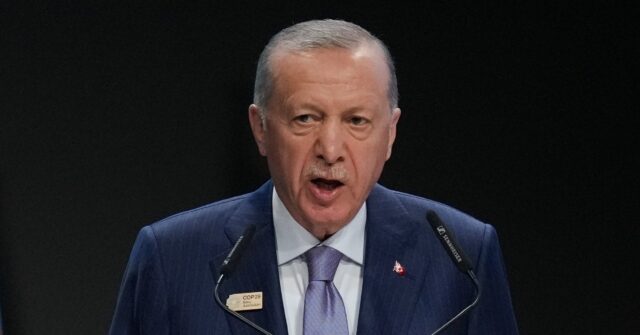In a recent speech in Mardin, Turkey, President Recep Tayyip Erdoğan reiterated his controversial pledge to “conquer Jerusalem,” which has raised eyebrows and signaled an escalation in tensions with Israel. This assertion is consistent with Erdoğan’s previous statements, most notably made in 2020 when he emphatically declared that “Jerusalem is our city.” During that speech, he lauded the historical role of the Ottoman Empire, which controlled Jerusalem for an extended period before its dissolution after World War I. Erdogan’s remarks reflect not only a revival of Ottoman nostalgia but also an ongoing ambition to position Turkey as a key player in the Muslim world, especially concerning Jerusalem’s significant religious and cultural heritage.
Erdoğan’s claim to Jerusalem resonates deeply within the context of Islamic history and identity. He referred to Jerusalem as a city of profound importance, emphasizing that it was “our first qibla” and home to sacred sites for Islam, Christianity, and Judaism. This emotional and historical reference aims to bolster his domestic credibility among his supporters and assert Turkey’s role in the broader Muslim community. However, such statements also introduce complexity into Turkey’s foreign relations, particularly with Israel, where Jerusalem is recognized as the capital and has profound significance in Jewish heritage. This intricate relationship is further complicated by Erdoğan’s previous rhetoric, which has often been inflammatory towards Israeli leadership.
Historically, Turkey and Israel have shared a strategic alliance, particularly as both nations are neighbors in a geopolitically sensitive region. However, Erdoğan’s support for Hamas, categorized as a terrorist organization by Israel and several other nations, has stoked tensions significantly. The dynamic between Erdoğan and Israeli Prime Minister Benjamin Netanyahu has evolved into a bitter rivalry, characterized by mutual insults and accusations. Erdoğan’s latest remarks can be interpreted as part of a broader strategy to galvanize support among Muslims in the region, leveraging nationalist sentiments that resonate well with his political base while antagonizing Israel.
The geopolitical landscape further complicates Turkey-Israel relations, particularly in light of recent military actions in Syria. Turkish forces have been involved in supporting rebel groups in Syria, which has included clashes with U.S.-backed Kurdish forces in the region. Israel, concerned about Turkey’s military capacity and its proximity to its borders, has undertaken defensive measures by advancing its military presence in vulnerable areas such as the eastern Golan and Mount Hermon. This military posturing indicates that both nations are navigating a precarious path towards potential conflict if mutual provocations continue.
In analyzing Erdoğan’s rhetoric and the subsequent developments in policy, it is evident that he is not just tapping into historical claims but is also skillfully employing the topic of Jerusalem to consolidate his power domestically. By portraying the issue of Jerusalem as a national cause, he is able to resonate with sentiments of nationalism and Islamism, drawing a clear distinction between Turkey’s aspirations and Israel’s policies. This strategy serves as a useful diversion from domestic issues facing his government, thereby ensuring that his focus remains on international affairs to bolster his standing at home, even if it incurs friction with Israel.
The implications of Erdoğan’s statements and Turkey’s current military actions are pertinent for the region’s stability. The historical grievances tied to Jerusalem, coupled with contemporary military engagements in Syria, suggest a shifting paradigm that could redefine alliances and tensions in the Middle East. As both countries navigate their complex relationships amidst increasing provocations, it remains to be seen how Erdoğan’s ambitions will shape future dialogues or conflicts surrounding Jerusalem and broader regional stability. This evolution will likely affect not just Turkey and Israel, but also influence the geopolitics involving other nations in the region, including the United States and various Middle Eastern states.

